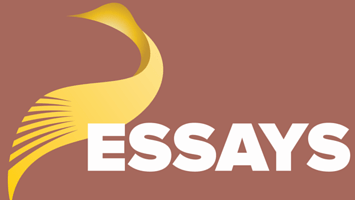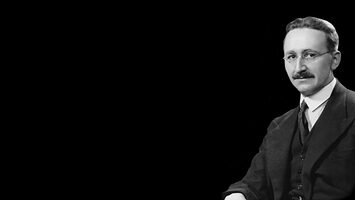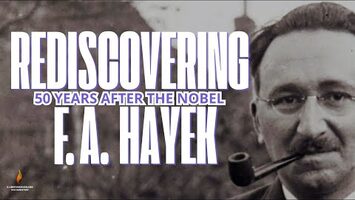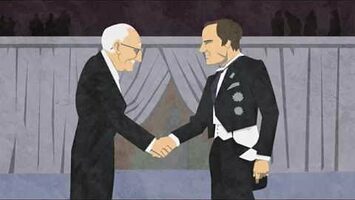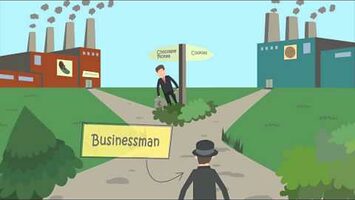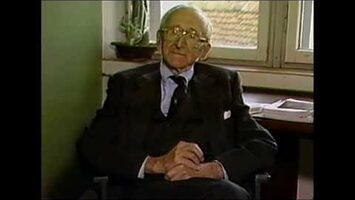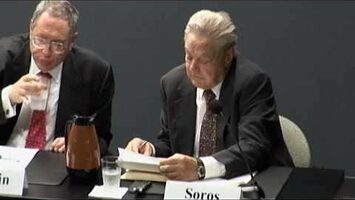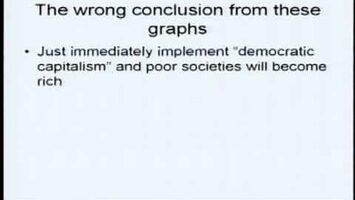Hayek, Friedrich A. (1899-1992)
Encyclopedia
F. A. Hayek is quite possibly the most eminent free-market economist and social theorist of the postwar world. He was born in Vienna in 1899 and entered the University of Vienna immediately following the end of the First World War. Hayek took his doctorates in jurisprudence in 1921 and in political theory in 1923. Although his work in economics would earn him the Nobel Prize in 1974, Hayek’s interests were far broader. Over the course of a long and productive life, he made significant contributions to a number of disciplines, including political and social theory, psychology, and the history of ideas.
In 1922, while Hayek was still completing his graduate studies, Ludwig von Mises published his devastating critique of a planned economy. In Die Gemeinwirtschaft (later translated into English as Socialism), Mises demonstrated that once markets are replaced by central planning, there exists no way of determining the values of goods and services, thus making rational economic calculation impossible. Mises’s essay was decisive in proving that without a genuine price system real costs cannot be calculated. As a consequence of reading Mises, Hayek abandoned his youthful socialist leanings and became a firm adherent of free markets and a regular participant at Mises’s weekly seminars.
Hayek’s early interest in the relation between bank credit and the business cycle led to his being appointed director of a newly established Austrian Institute for Business Cycle Research in 1927. While there he published his first important work in economics, Geldtheorie und Konjunkturtheorie) published in English in 1933 as Monetary Theory and the Trade Cycle), which sought to explicate the complex relationship between credit expansions and capital malinvestment and how these factors lay at the root of business cycles. As a consequence, Hayek was invited to deliver a series of lectures at the London School of Economics (LSE) by Lionel Robbins, who headed the economics department there. Those lectures, which appeared in book form as Prices and Production, took the economics profession by storm; as a consequence, Robbins offered Hayek the Tooke Professorship in Economic Science at the LSE, which Hayek took up in 1931.
It was from that period that Hayek’s famous confrontation with John Maynard Keynes occurred. Keynes, at the time arguably the world’s most celebrated economist, had published his Theory of Money in 1930, and Lionel Robbins, editor of the prestigious journal Economica, assigned the book to Hayek to review. In his critique, Hayek argued that Keynes’s theory was fatally flawed by its failure to appreciate the importance of monetary factors in altering the structure of production and causing malinvestment. To that Keynes wrote a reply and, as editor of the Economic Journal at Cambridge, asked Piero Sraffa to review Hayek’s book. Hayek in turn replied to Sraffa’s review, to which Sraffa wrote a rejoinder. The debate between Hayek and Keynes, which dominated academic economics for a time, soon spread throughout Britain and came to include every important economist then writing.
It was while at the LSE that Hayek also first published his essays on knowledge and prices, which constituted one of his most original contributions to the field of economics and social philosophy. In “Economics and Knowledge” (1937) and “The Use of Knowledge in Society” (1945), Hayek maintained that the rational allocation of resources was dependent on the coordination of the dispersed bits of knowledge possessed by each actor in an economy and that only free markets could provide the necessary coordinating structure. Knowledge, he argued, takes a variety of forms and need not even be conscious. It is through the individual pursuit of private ends that bits of knowledge are transmitted to economic actors in the form of prices. The market, Hayek argued, can be understood as serving an essential epistemological purpose, as a discovery process, that is, as a vehicle for the generation of knowledge.
Hayek’s insights into the market as a coordinating mechanism of otherwise dispersed knowledge served as the philosophical underpinning of his most important insight into social theory, the idea that complex social institutions, while the product of human action, are not the product of human design. Social institutions, Hayek contended, are so complex that their internal structure cannot be fully understood by any one mind or group of minds. They arise and take their shape not from conscious human invention, but through evolution as the product of countless human interactions, each aimed at some more immediate, private end. The notion that the social arrangements under which we live are the product of evolution and not of deliberate calculation had been earlier suggested by the thinkers associated with the Scottish Enlightenment, in particular Adam Smith, David Hume, and Adam Ferguson. Indeed, Adam Smith’s conception of the invisible hand is one prominent instance of the broader idea of spontaneously generated orders. In his writings, Hayek maintained that language, law, morals, and social conventions were all instances of spontaneously generated orders. Hayek regarded the view that social arrangements required some central controlling authority, lest lawlessness and chaos ensue, as the entryway to totalitarian ideologies. Hayek regarded this rationalistic approach to social problems, predicated on the view that the methodology of the natural sciences was applicable to social questions, as inimical to a free society, and associated it with the French Enlightenment and continental political theory.
Alarmed by the prodigious growth of government in the 20th century, even in those nations ostensibly dedicated to personal liberty and private initiative, Hayek wrote The Road to Serfdom in 1944. The essay was directed primarily at a lay rather than an academic audience, and it warned of the dangers inherent in a planned economy, pointing to the similarities between the social and economic systems that had been embraced by National Socialist Germany and Fascist Italy, on the one hand, and by the Allied powers, on the other hand. Hayek had been alarmed by the prevailing orthodoxy that viewed an immense welfare state and extensive government intervention into the lives of its citizens as a compassionate response to unrestrained capitalism. In The Road to Serfdom, he hoped to show that those preconceptions were rooted in the same distrust of individual initiative and voluntary exchange as were the ideologies with which the West was at war, and that central planning, even should its intentions be benign, resulted in destroying the spontaneously generated order of the market, which in turn led to even more government planning.
The book was received enthusiastically in both the United States and Great Britain, to the point where the American publisher, the University of Chicago Press, was unable to print enough copies to meet the demand because of the wartime rationing of paper. However, the essay was able to reach a much larger American audience when the Reader’s Digest published a 20-page excerpt of the book in April 1945. The American lecture tour that followed the appearance of the Reader’s Digest excerpt whetted Hayek’s appetite to spend more time in the United States, and he was prevailed on to accept an appointment to the Committee on Social Thought at the University of Chicago, which he took up in 1950.
While at the University of Chicago, Hayek published his most ambitious work in social and legal philosophy, The Constitution of Liberty (1960). In that work, Hayek attempted to set out nothing less than a treatise on the theoretical foundations of a free society. A work of immense erudition, The Constitution of Liberty outlines Hayek’s views on the origins and nature of law in a liberal society, his conclusions regarding the nature of justice, and his conception of a free society. A free polity, Hayek contended, is one in which men are governed by abstract, general rules that are predictable in their application and apply to all, in contrast to systems of government based on the exercise of wide, discretionary powers by those in authority.
Among his final essays was the three-volume Law, Legislation, and Liberty (1973, 1976, 1979), in which Hayek elaborated on his earlier discussions of the nature of liberty and the political and legal framework of a free commonwealth. In that work, Hayek amplified his views on the nature of social evolution and described how the moral and legal rules that have proved themselves compatible with free societies emerged without the need of a lawgiver. In The Fatal Conceit (1988), Hayek took up a theme that he had dealt with earlier in a series of articles that first appeared in the British journal Economica and were later published in book form as The Counter-Revolution of Science: Studies in the Abuse of Reason (1952). Those earlier studies provided a persuasive defense of methodological individualism and criticized those who asserted that we may make meaningful statements about social collectivities independent of their constituent components. The Fatal Conceit was to be Hayek’s last book. In it, he once again took issue with those who refuse to acknowledge the limitations of human knowledge and who are under the mistaken notion that reason alone is sufficient to shape the complex of rules and institutions that make up modern society and that, as a consequence, conscious social planning is possible and salutary.
Hayek died in 1992, having witnessed the total collapse of the socialist economies of Eastern Europe. More important, he was aware that his own work played a crucial role in the revolutions that swept the Eastern Bloc. That is certainly the highest tribute that can be accorded to someone who dedicated his life to the ongoing war against tyranny.
Further Readings
Barry, Norman P. Hayek’s Social and Economic Philosophy. London: Macmillan, 1979.
Boettke, Peter, ed. The Intellectual Legacy of F. A. Hayek in Politics, Philosophy and Economics. 3 vols. Cheltenham, UK: Edward Elgar, 2000.
Gissurarson, Hannes. Hayek’s Conservative Liberalism (Political Theory and Political Philosophy). New York: Garland, 1987.
Gray, John. Hayek on Liberty. Oxford: Blackwell, 1984.
Hamowy, Ronald. The Scottish Enlightenment and the Theory of Spontaneous Order. Carbondale: Southern Illinois University Press, 1987.
Kukathas, Chandran. Hayek and Modern Liberalism. Oxford: Clarendon Press, 1989.
O’Driscoll, Gerald. Economics as a Coordination Problem: The Contribution of Friedrich A. Hayek. Kansas City, MO: Sheed Andrews & McMeel, 1977.
Sciabarra, Chris. Marx, Hayek, and Utopia. Albany: State University of New York Press, 1995.

